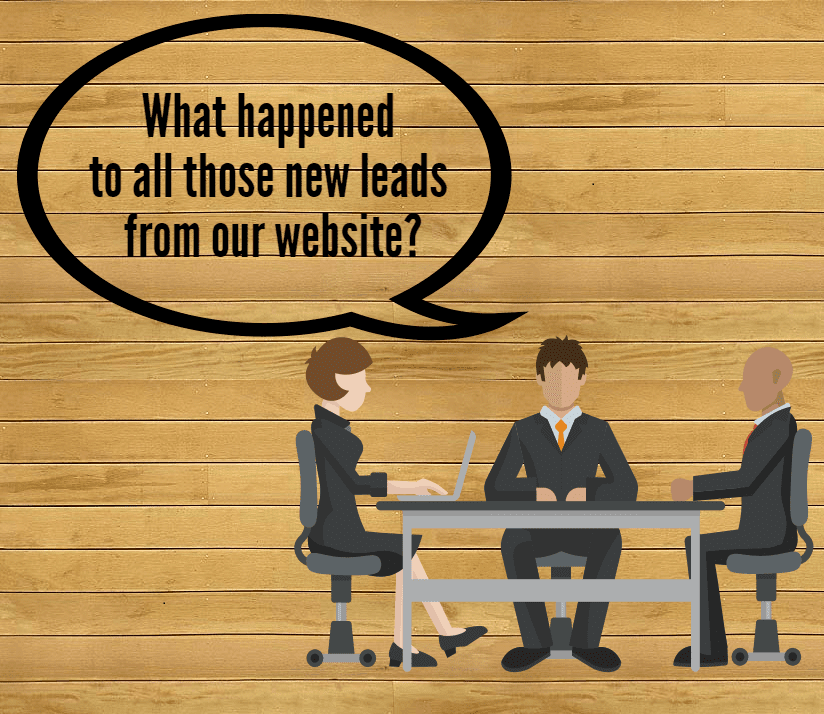What’s Keeping Your Prospects from Becoming Customers? Choosing a CRM for Your Business
Any company that’s serious about capturing more sales leads and (more importantly) converting them into customers needs a way to track those leads as they move through the sales funnel. Are there places where leads tend to stall out? Are you leaving hot customers behind because someone forgot to follow up with them?
In other words: What’s keeping your prospects from becoming customers?
The only way to answer these questions and to stay competitive is to track your leads. And to accomplish this sophisticated task properly, companies are turning to customer relationship management (CRM) or sales force automation (SFA) systems.
 What these systems do right is they tell you where your sales process is weak – where you’re losing people. They can also help you to keep track of everyone who is even just browsing your website and content. The information you can get from these systems is crucial for targeted, personalized marketing.
What these systems do right is they tell you where your sales process is weak – where you’re losing people. They can also help you to keep track of everyone who is even just browsing your website and content. The information you can get from these systems is crucial for targeted, personalized marketing.
Choosing a CRM for your business and your team can make or break your CRM success. You need something that’s easy to use and that employees can stick with. Studies show that 49% of users fail to use their CRM consistently – which means companies aren’t getting the ROI they should be getting.
In the interest of full disclosure, RTS Labs specializes in customizing Salesforce for clients – but that doesn’t mean Salesforce is always the right choice for everyone. That’s why we’ve put together this quick guide of three major CRM systems, so you can weigh the pros and cons of each. They are: Salesforce, Microsoft Dynamics, and Zoho CRM. Salesforce and Microsoft Dynamics are the two market leaders. Zoho CRM is one of the strongest niche players in the industry for small- to mid-sized businesses.
Below are some of the key strengths of each of these products to help you make up your own mind about which product would work best for your business.
Salesforce
Pros:
- Market Leader – Salesforce is the most widely used CRM out there. That means new hires will often already know how to use it, because it was the product they used at their last job.
- Cloud-Based – The original and still very compelling selling point for Salesforce is that there is no software to install or support. In addition to the savings you get by not supporting hardware and software, your data is probably a lot safer, because Salesforce has world-class data centers with better security and disaster recovery than you could provide on your own.
- Salesforce Eco-System – No other CRM or SFA has an eco-system of independent technology companies driving innovation like you get with the Salesforce AppExchange. This means you aren’t relying on one company to give you all the solutions you may need as your business grows and evolves.
Cons:
- Salesforce is more expensive in terms of subscription and licensing fees.
- There’s no option to host the software in house, if that’s what you need.
Microsoft Dynamics
Pros:
- Great Fit for Microsoft Shops – If you have the Microsoft Dynamics ERP and have invested heavily in the Microsoft software stack, there can be a good business case for also investing in Microsoft Dynamics.
- On-Premise Self-Hosted Option – If your company or organization has the need to self host and control all your applications, Microsoft Dynamics can accommodate those needs.
- Usability – Microsoft Dynamics gets high ratings on ease of use from their user community.
Cons:
- There is no Sales Performance Management or Channel Partner Management capability.
- The partner network is much smaller, which means fewer add-on technologies to choose from.
- It is not as well accepted by high-level sales and marketing professionals, perhaps because as some users report, it’s not as intuitive or ready to use out of the box for marketing campaigns as other options. Reviewers of the product also complain that it requires a great deal of customization to be optimal for their organizations’ email and other marketing programs.
Zoho CRM
Pros:
- Low Subscription Price – This may be more affordable for companies with very limited budgets. Zoho has a “freemium” business model that starts with a free three-user system and then low monthly subscription rates for more than three users.
- Simple Product – For less tech-savvy users, the product is fairly easy to learn.
- No Contracts – You can pay monthly with no contracts required.
Cons:
- It’s a starter CRM, which means you could quickly run into gaps in functionality if your business grows fast.
- The demands of your business can quickly become too complex for Zoho as your requirements or workflows evolve.
There’s ample evidence that most large or fast-growing companies that are really counting on their sales department to drive growth in 2016 may be best served by going with Saleforce as their CRM/SFA system. However, that doesn’t mean there aren’t other justifiable reasons for choosing another CRM. With all CRM/SFA systems, the biggest factor affecting success will be consistent adoption of your new system. If users are allowed to get away with not properly learning and using the system, then you are headed for trouble.
What is your favorite CRM? Do you have an experience to share about your CRM? We’d love to hear from you.